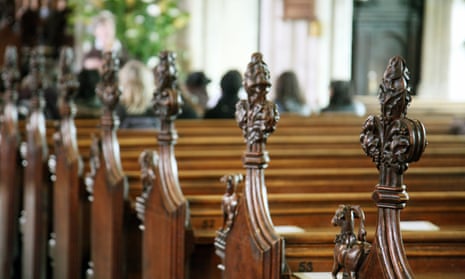The growth of secularism in the UK is unabated with fresh data showing stark generational differences and a new confidence among the non-religious to declare themselves atheist.
Only 1% of people aged 18-24 identify as Church of England, according to the British Social Attitudes (BSA) survey for 2018. Even among over-75s, the most religious age group, only one in three people describe themselves as C of E.
Across all age groups, the younger people are the less likely they are to call themselves Anglican.
The steady decline in religious belief among the British public is “one of the most important trends in postwar history”, says the BSA report.
Fifty-two percent of the public say they do not belong to any religion, compared with 31% in 1983 when the BSA survey began tracking religious belief. The number of people identifying as Christian has fallen from 66% to 38% over the same period.
“Britain is becoming more secular not because adults are losing their religion but because older people with an attachment to the C of E and other Christian denominations are gradually being replaced in the population by younger unaffiliated people,” says the report.
“To put it another way, religious decline in Britain is generational; people tend to be less religious than their parents, and on average their children are even less religious than they are.”
Non-religious parents successfully transmit their lack of faith to their children, but two religious parents have only a 50/50 chance of passing on their faith, the report says.
The non-religious are increasingly atheist. One in four members of the public stated: “I do not believe in God,” compared with one in 10 in 1998. The figures challenge theories that people are “believing but not belonging” – in other words, that faith has become private rather than institutional – the report says.
The proportion of people who say they are “very or extremely non-religious” has more than doubled, from 14% to 33% in the past two decades.
Nevertheless, most people are tolerant of others’ religious beliefs. A large majority of both non-believers and people of faith have positive or neutral views of individuals who belong to a religion.
Only 3% of people say they would definitely not accept a mixed-faith marriage within their family, with 82% saying they would definitely or probably accept someone from a different religion marrying a relative.
As religious adherence declines, trust in scientific institutions is increasing, says the report. University scientists have a higher trust rating (82%) than corporate scientists (67%).
In terms of confidence in institutions, 11% of people say they trust churches and religious organisations, compared with 36% who have confidence in the education system, 34% in the legal system, 16% in business and industry and 8% in parliament.









